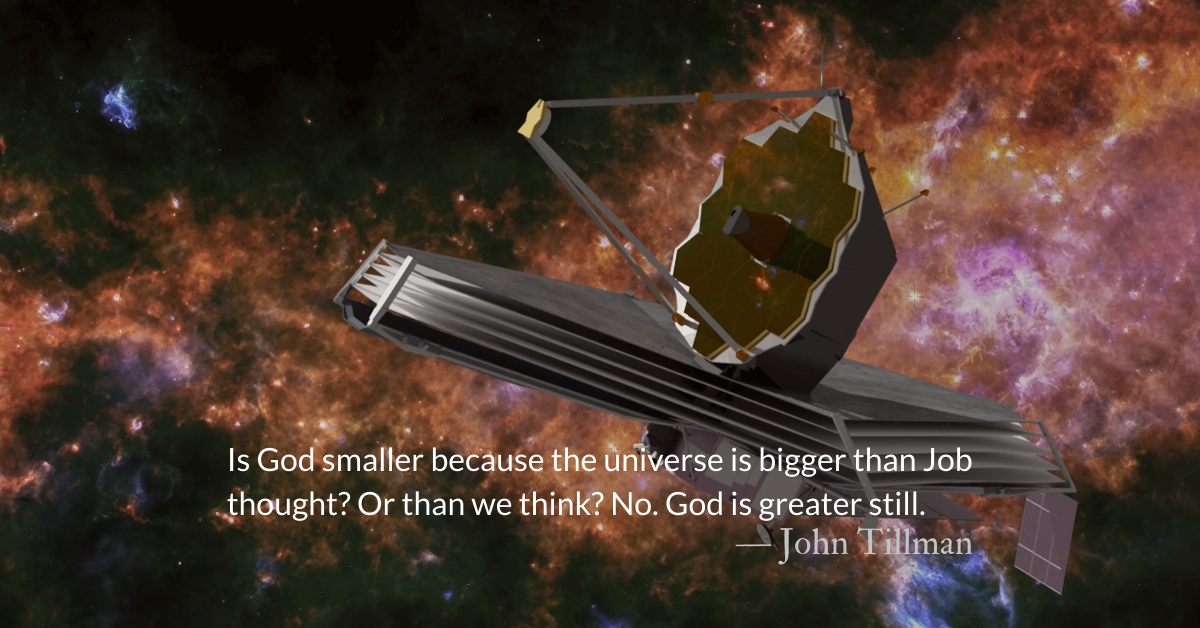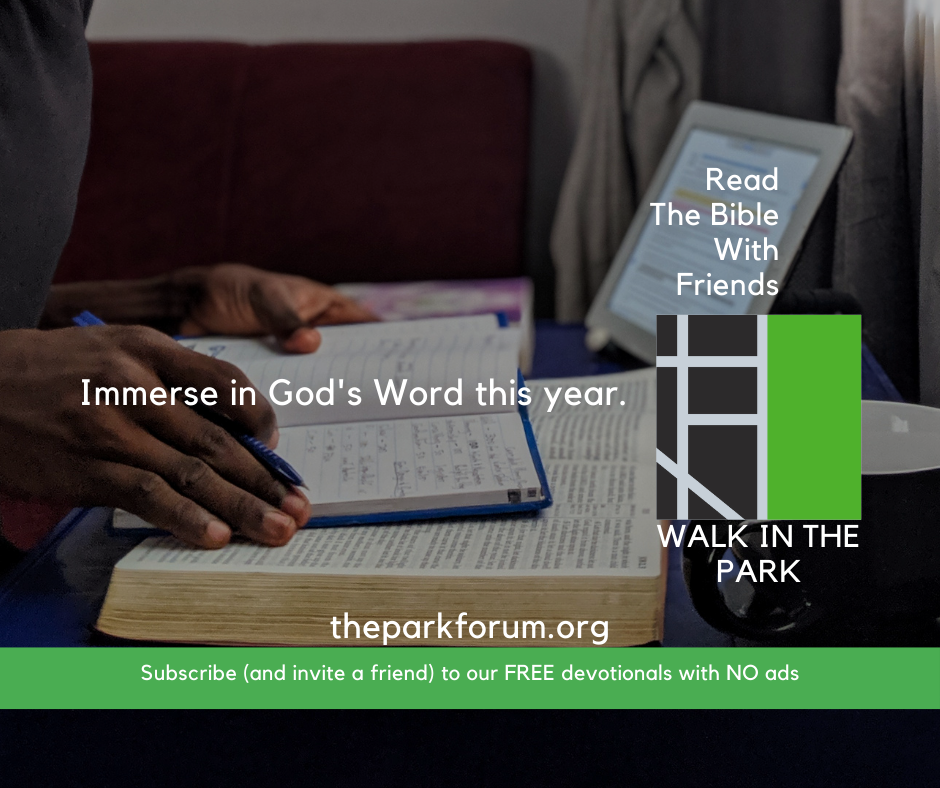Scripture Focus: Job 26.5-14
5 “The dead are in deep anguish,
those beneath the waters and all that live in them.
6 The realm of the dead is naked before God;
Destruction lies uncovered.
7 He spreads out the northern skies over empty space;
he suspends the earth over nothing.
8 He wraps up the waters in his clouds,
yet the clouds do not burst under their weight.
9 He covers the face of the full moon,
spreading his clouds over it.
10 He marks out the horizon on the face of the waters
for a boundary between light and darkness.
11 The pillars of the heavens quake,
aghast at his rebuke.
12 By his power he churned up the sea;
by his wisdom he cut Rahab to pieces.
13 By his breath the skies became fair;
his hand pierced the gliding serpent.
14 And these are but the outer fringe of his works;
how faint the whisper we hear of him!
Who then can understand the thunder of his power?”
Reflection: The Whispers of God
By John Tillman
Ancient cosmology is well worth investigating for Christians. (Further Study from The Bible Project.) It tells us about the presuppositions of biblical writers and early readers.
We take for granted gravity, physics, thermodynamics, complex orbits of planets and other objects, and the vast void of space. The best minds of our time and observations of our universe tell us these are true. We unthinkingly apply our presuppositions to scripture. We read, “the earth was formless and empty…” (Gen 1.2) and think about pre-Big-Bang nothingness.
The early readers of Genesis wouldn’t have been thinking of that at all. Ancient people, like Job, believed the best minds of their time and observations of their universe. They took for granted the earth was flat, supported above the nothingness of the chaos waters below. They weren’t fact-denying flat-earthers. They simply didn’t have the evidence we do today.
Job describes the wonders of God in a passage focusing on cosmology and the created world. He describes everything from the deep chaos waters (and monsters) and the realm of the dead to the skies and the sun, moon, and stars above them. Job would be unfamiliar with our understanding of gravity, or the water cycle, but that didn’t stop him from being amazed at how clouds, heavy with water, can float in the sky and how the earth can be suspended over waters when stones and dirt sink in a stream.
The hubris of knowledge can make us callous. Are these things any less wondrous to us simply because of greater scientific knowledge?
Job calls the wonders of creation “whispers” of God—the faint fringes of his power and glory. (Job 26.14; Romans 1:20) God’s whispers of wonder still come from creation today. Science is not the enemy of God but his microphone, microscope, and telescope.
The James Webb Space Telescope will soon show us more of the universe than ever before—distant realms Job never imagined. God’s whisper still reaches us from there. The deeper we look into space (or any science) the deeper God’s wonders whisper to us.
The universe that Job believed in didn’t exist as he thought it did. Some of our current conclusions may be proved wrong in time. That makes God no less real and no less powerful. Is God smaller because the universe is bigger than Job thought? Or than we think? No. God is greater still. And we will yet hear the thunder of his power. (Exodus 20.18-19; John 12.28-29; Revelation 10.4-7)
Image Note: Today’s image contains an artist’s rendering of NASA’s James Webb Space Telescope.
Divine Hours Prayer: The Refrain for the Morning Lessons
This is the Lord’s doing, and it is marvelous in our eyes. — Psalm 118.23
– From The Divine Hours: Prayers for Autumn and Wintertime by Phyllis Tickle.
Today’s Readings
Job 25-26 (Listen – 1:52)
Psalm 35 (Listen – 3:21)
Join us! Walk through the Bible with us…
Share this subscription link with friends, family, or your community of faith. Reflect on God’s Word this year!
https://mailchi.mp/theparkforum/m-f-daily-email-devotional
Read more about Spiritual Instruments
Whatever scientific instruments we use…we find the fingerprints of God.












